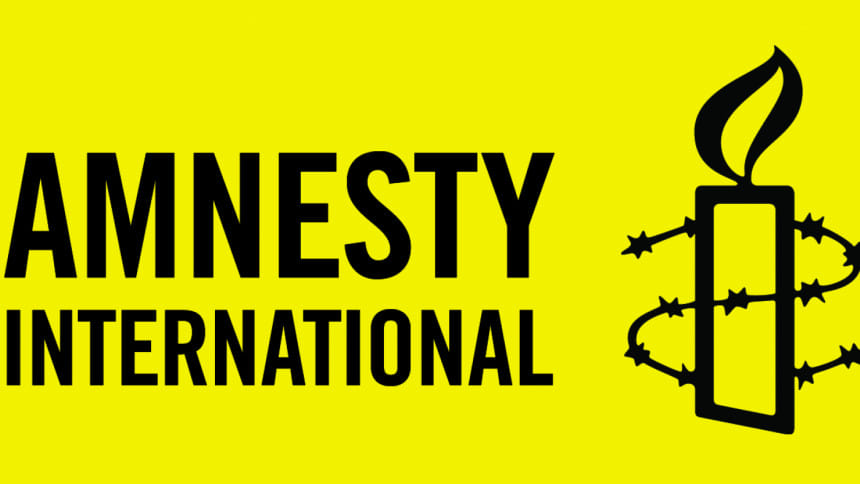Mixed record in human rights for Bangladesh in 2019: Amnesty International

Bangladesh had a mixed record on human rights in 2019, as it continued to host nearly a million Rohingya refugees and inched towards the progressive realisation of economic and social rights while some freedoms remained under attack, Amnesty International said in a report.
The global rights group’s annual report on events in the Asia-Pacific region, “Human Rights in the Asia Pacific: Review of 2019” was published on Thursday.
It is available on AI’s website.
Shrinking Space for Dissent
“The rights to freedom of expression and peaceful assembly were increasingly restricted through draconian laws that actively shrink the space for dissent. People in Bangladesh continued to be harassed and arrested for speaking out,” said Sultan Mohammed Zakaria, South Asia researcher at Amnesty International.
Under the Digital Security Act, at least 20 people were arrested and nearly 400 indictments filed, the report says in its dedicated chapter on Bangladesh.
In February last year, five journalists were sued, including one who was detained by police and later released for reporting on police corruption, it said.
Fear of reprisals and intimidation from intelligence forced journalists to self-censor, it added.
The political opposition was not allowed to organise campaign meetings and political rallies in a violation of their rights to freedom of association and peaceful assembly, it further said.
In October last year, Abrar Fahad, a student of Bangladesh University of Engineering and Technology (Buet) was beaten to death at his dormitory “days after criticising the government’s agreement with India on Facebook”.
“Heavy-handed tactics employed by the student wing affiliated to the ruling party demonstrate they have little patience for people who disagree with their views and policies,” the report said.
“The risks associated with exercising the rights to freedom of expression and peaceful assembly are becoming increasingly high in Bangladesh. The authorities must respect and protect people’s right to express and organise themselves without fear and repression,” said Zakaria.
Violence and Extrajudicial Killings
The report says in 2019 more than 388 people were killed by the security forces in alleged extrajudicial executions, carried out as part of the country’s “war on drugs” campaign.
In some cases, victims were forcibly disappeared for months before they were killed in what the authorities claimed were “gunfights.”
In addition, at least 13 people were forcibly disappeared last year, the report said.
There were at least 4,732 reported incidents of violence against women and girls, including 2,448 rapes and 400 attempted rapes, it also said.
In September 2019, there were 232 reported cases of rape – the highest in a single month since 2010, the report mentions.
The Rohingya refugees in Bangladesh
Bangladesh continued to host nearly a million Rohingya refugees in camps in the Cox’s Bazar district.
In November 2019, the wheels of justice for Rohingyas began to turn as the judges of the International Criminal Court (ICC) authorised an investigation into alleged crimes against humanity of deportation and persecution committed by the Myanmar military against the Rohingya population.
However, the Rohingyas faced many restrictions within Cox’s Bazar, including on their freedom of movement and access to education for children, the report said.
They were also the subject of a smear campaign within Bangladesh that portrayed them as a “burden” and even a threat to “national security”, it adds.

 For all latest news, follow The Daily Star's Google News channel.
For all latest news, follow The Daily Star's Google News channel. 



Comments